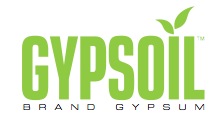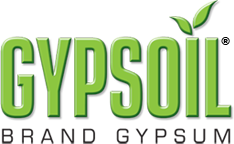News Releases
Media inquiries
Using gypsum to improve soil quality is a popular topic for farm and agricultural inflencer audiences. Please contact our communications consultant Karen Bernick at 1-866-GYPSOIL (497-7645) if you have questions, need story ideas, photos or want to set up interviews with a GYPSOIL team member. GYPSOIL also participates in many national trade shows and meetings including Ag Media Summit, Commodity Classic, National No Tillage Conference and Farm Progress show to name a few.
to improve soil quality is a popular topic for farm and agricultural inflencer audiences. Please contact our communications consultant Karen Bernick at 1-866-GYPSOIL (497-7645) if you have questions, need story ideas, photos or want to set up interviews with a GYPSOIL team member. GYPSOIL also participates in many national trade shows and meetings including Ag Media Summit, Commodity Classic, National No Tillage Conference and Farm Progress show to name a few.
High resolution photos for current news release available here.
Recorded and Powerpoint presentations from the 2014 Midwest Soil Improvement Symposium can be found on the Symposium page.
Highlights from the 2014 press conference at Ohio Farm Science Review.
A collection of general press releases can be found below:
GYPSOIL now available

FOR IMMEDIATE RELEASE
CHICAGO - June 1, 2010 - A ready supply of inexpensive gypsum is now available to Midwestern crop growers for use as a soil treatment. Beneficial Reuse Management (BRM) is building a network to distribute its GypsoilTM brand gypsum to improve soil fertility and structure.
“GypsoilTM is an excellent option for supplying sulfur and it improves water permeability of tight soils, such as those with high clay content. It also promotes better residue breakdown, improved plant rooting and greater utilization of soil nutrients,” says Ron Chamberlain, director of gypsum programs for BRM.
Gypsum is one of the oldest fertilizers used in agriculture. Ben Franklin was a strong advocate who recognized its benefits for crop production more than 200 years ago.
However, except for certain specialty crops, such as peanuts and potatoes, gypsum has not been widely used in cropping systems over the years because it is expensive to mine and transport.
GypsoilTM brand gypsum is a byproduct of the process that cleans the air from coal-burning plants located throughout the Midwest by removing sulfur dioxide (SO2) from flue gases. The resulting synthetic gypsum, sometimes called FGD (flue gas desulfurization) gypsum, has been shown to be nearly 100 percent pure, even cleaner than mined gypsum.1
Gypsum is an excellent source of soluble calcium and sulfur, which are vital crop nutrients. Many Midwestern soils are low or deficient in sulfur, in part because of less acid rain as a result of flue gas scrubbing. Gypsum has been proven as an ideal sulfur fertilizer for many crops, including corn, alfalfa and soybeans.2 Although most Midwestern soils have adequate calcium, gypsum is used effectively as a calcium fertilizer for potatoes, peanuts and other root and orchard crops.
Applying GypsoilTM to cropland improves soil structure by neutralizing the metals and chemical salts that bind to clay particles and cause clumping and sealing at the soil surface. “That means gypsum users will see less ponding and runoff after a rain, as well as less soil erosion,” says Chamberlain.
GypsoilTM also helps create an excellent environment for soil organisms - microbes as well as earthworms. These soil organisms break down organic matter and nutrients in the soil faster and better, making the nutrients more available to plants.
The beneficial reuse of GypsoilTM on agricultural ground not only enhances crop production, it also decreases the amount of material being disposed in landfills. In addition to synthetic gypsum, GypsoilTM markets wallboard gypsum recycled from construction waste.
GypsoilTM was founded in 2002 by Chamberlain and acquired by BRM in 2009. BRM identifies byproducts of various manufacturing processes that can be used in safe and effective ways to benefit land owners and conserve natural resources and preserve landfill space. Created as a byproduct of the eco-friendly process of producing electricity, GypsoilTM is an ideal match for BRM.
GYPSOIL's mission is to make a positive difference in our customers soil productivity while conserving natural resources and protecting the environment.
GypsoilTM is a division and tradename of Beneficial Reuse Management Inc.
GYPSOILTM brand gypsum is a highly consistent, fine granular product. It can be broadcast with a lime spreader or other spreader suitable for bulk dry material, even manure spreaders, any time farmers can get into the field. Most farmers apply about one ton of gypsum per acre every year or two when used as a soil amendment. For sulfur fertilization only, an application of 100 to 300 pounds per acre may be sufficient.


